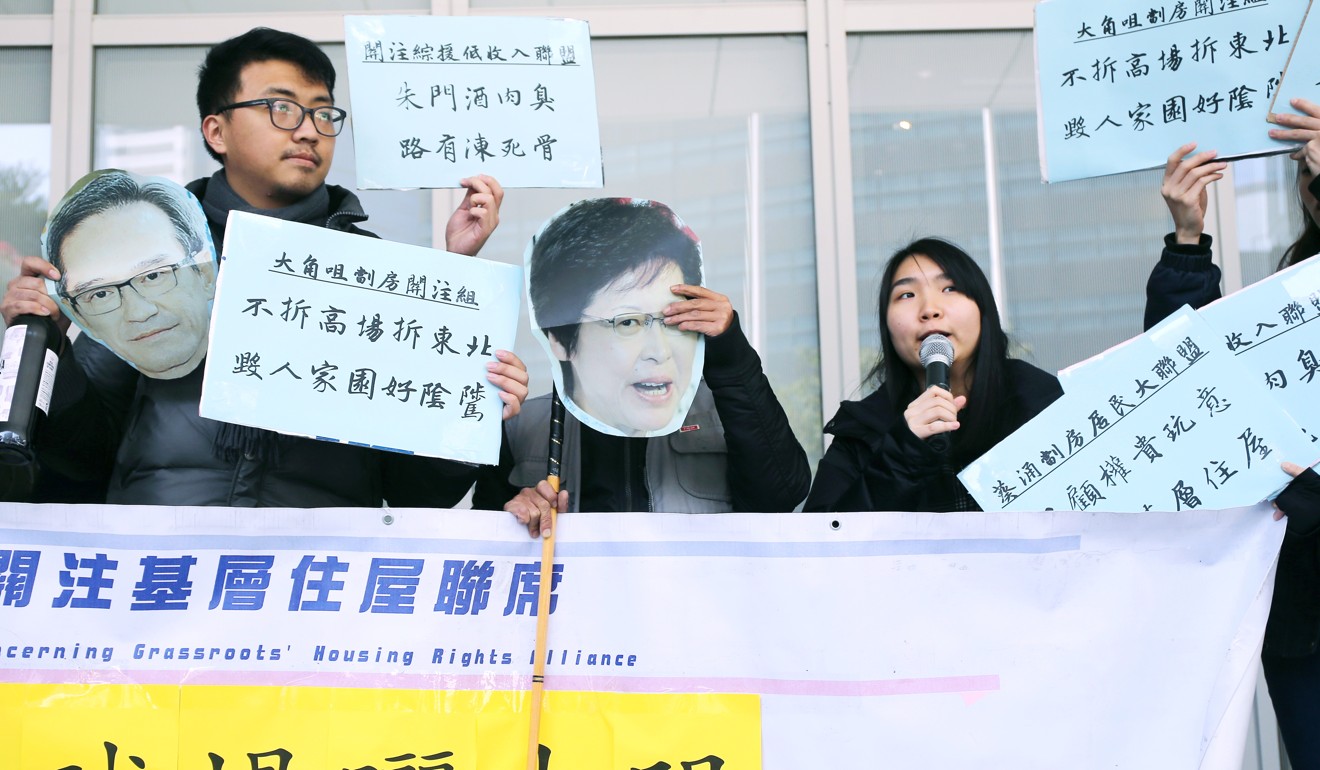
Letters to the Editor, March 14, 2018
To safeguard small houses, stop the abuse
I, as so many others, am against the small-house policy the way it is executed. The intention of the policy was to secure a plot of land so that villagers would be secured of a place to live.
To secure the “small-house policy” for the future, I suggest that it is executed as it was intended – to ensure a place to live for the villager and not anyone else.
Therefore, the male villager who is given the plot of land upon turning 18 should be able to prove he has lived in Hong Kong for his entire lifetime, and that he intends to live in the house he is going to build himself.
Under no circumstance can the house, or land, be sold or leased out.
If the villager wishes to emigrate, or passes away, the plot should be returned to the village or government, so it can be passed on to another villager who has earned the right to a plot.
In this way, plots will become available in the future and a possible shortage can be prevented.
Jeffry Kuperus, Clear Water Bay
Golf is a luxury when homes are scarce
Undoubtedly, sports development should be encouraged and promoted, as it is an often neglected sector. It is a blessing that we even have golf courses big enough to host international events. However, shouldn’t the public’s basic needs be considered first?
The housing problem is indeed dire, and the problem is not that Hong Kong doesn’t have enough land, but that it doesn’t have enough suitable land.

Golf courses are flat and large, making them a good choice for housing development. It is too selfish to keep golf courses while hundreds of thousands of people are left out in the cold.
Golf courses are a luxury compared to these people’s desperation to fulfil their basic need of a roof over their heads. What is more, the government is not planning to develop all private golf courses but just one out of eight.
Unless better sites are found, developing golf courses for housing should be the solution for this urgent social problem.
Cindy Chong, Tai Kok Tsui
Give DSE cash to schools for better resources
If the government really wants to use the money on education, I suggest they spend it on improving school resources. Pupils of schools that currently have to use old and broken study equipment would then benefit greatly.
Fiona Chow, Kwai Chung
Legco hopefuls failed voters with no Chinese
Given that Hong Kong has been my home since 1983, I would be the first to admit that my lack of even basic Cantonese is shameful.
However, I am less contrite about my inability to read Chinese.
I am a registered voter and have cast my vote on every occasion in the past but did not do so on Sunday (March 11), because I did not receive any meaningful information in English from the candidates for the Legislative Council by-elections.
What little information I did receive from the candidates was, with one exception, all in Chinese.
The exception is hardly worth a mention, as it consisted of a very short bullet-point summary in English, but the font was so small that it was difficult to read.
And so I have a simple message to future election candidates in Hong Kong: there are hundreds, if not thousands, of voters – or potential voters – who cannot read Chinese. There are four in my household alone.
And so, if you want their vote, how about using English as well as Chinese to tell us more about yourself and what you stand for?
Nicholas Kitto, Hang Hau
Hope lost for true republic of the people
Delegates to the National People’s Congress on Sunday gave near-unanimous approval to sweeping changes to the constitution, formally scrapping a two-term limit on presidents and vice-presidents. This would enable Xi Jinping to remain as president, if he so wished, even after his two terms end in 2023.
I believe the amendment paves the way for Xi to be China’s “president for life”.
Although China is a stronger nation under Xi’s rule, this is not a good thing to happen to a republic – as it does not imply a real republic of the people. It indicates a hopeless situation to me and many other Chinese citizens.
Leung Chun Fung, Tseung Kwan O

